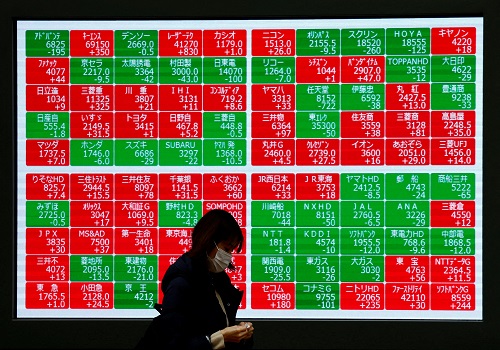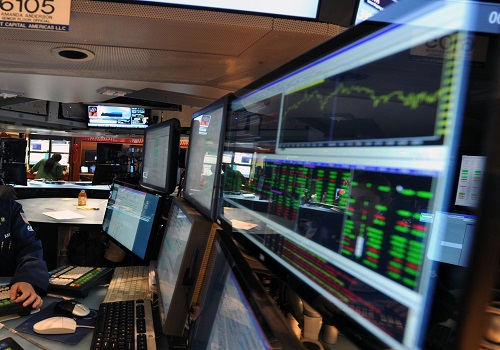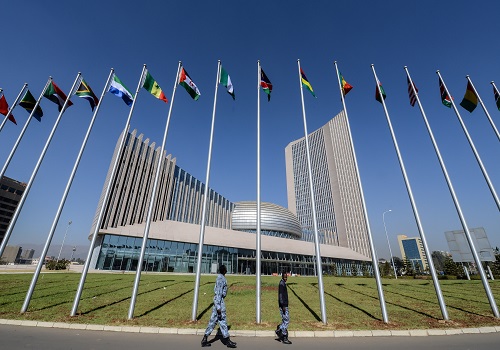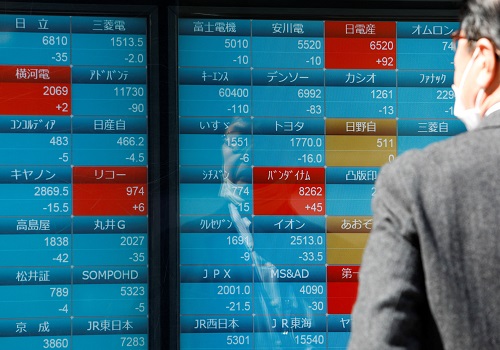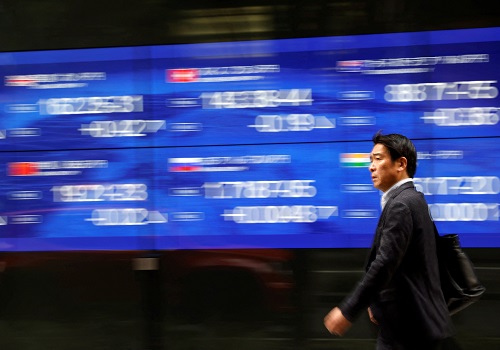Asia shares take comfort in China property rally
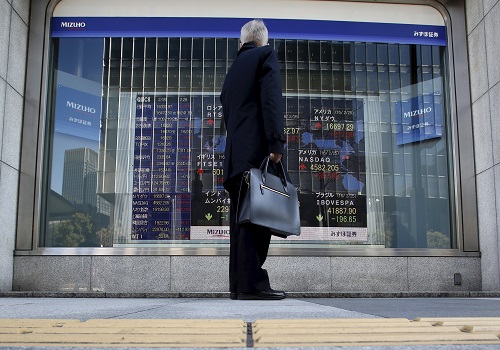
Follow us Now on Telegram ! Get daily 10 - 12 important updates on Business, Finance and Investment. Join our Telegram Channel
Asian shares edged higher on Tuesday as Beijing's latest move to support developers boosted the property sector, though it was still not clear what new damage public unrest over China's zero-COVID policy might do to the economy.
Shares of Chinese property companies surged after the country's securities regulator lifted a ban on equity refinancing for listed property firms.
That helped Chinese blue chips bounce 1.1%, while MSCI's broadest index of Asia-Pacific shares outside Japan added 0.7%.
Japan's Nikkei lagged with a drop of 0.4%, while South Korea firmed 0.3%.
S&P 500 futures and Nasdaq futures both nudged up 0.1%. EUROSTOXX 50 futures lost 0.2% and FTSE futures 0.1%.
Markets were still nervous that the widening web of restrictions in China would lead to more public unrest and further undermine growth.
Analysts at Nomura said their index of lockdowns now showed the equivalent of 25% of China's GDP was affected, compared to a previous peak of 21% last April.
"Although Shanghai-style full lockdowns may be avoided, partial lockdowns in a rising number of cities may be more costly than full lockdowns in just a couple of cities," noted Nomura.
Underlining the far reaching impact of Beijing's policies, Apple Inc shares had fallen 2.6% on reports COVID-19 restrictions would cause a sizable shortfall in production of iPhone pro units.
"The zero China COVID policy has been an absolute gut punch to Apple's supply chain," said Daniel Ives, an analyst at Wedbush.
"We estimate that Apple now has significant iPhone shortages that could take off roughly at least 5% of units in the quarter and potentially up to 10% depending on the next few weeks in China around Foxconn production and protests."
HIGHER FOR LONGER
Sentiment also soured when Richmond Federal Reserve Bank President Thomas Barkin became the latest official to douse speculation the central bank would reverse course on interest rates relatively quickly next year.
That heightened tensions ahead of speech by Fed Chair Jerome Powell on Wednesday that is shaping up to be a major messaging event as markets yearn for a pivot on policy.
Analysts suspect they may be disappointed.
"We envision him basically confirming a slower pace of hikes at the December meeting, which is almost entirely priced in," said Jan Nevruzi, an analyst at NatWest Markets. "But we also think he will reiterate that the Fed intends to stay in restrictive territory through next year."
"The softening in the October CPI was welcome news, but hardly a complete victory yet, while growth and labour market data are still strong," he added "It doesn't feel like there is upside for Powell to dial back on the hawkishness."
The Fed is not alone in being hawkish, with European Central Bank President Christine Lagarde warnings euro zone inflation has not peaked and could go even higher.
Figures for inflation in Germany and Spain are due later on Tuesday, ahead of the main eurozone report on Wednesday.
Lagarde's comments had initially helped the euro spike to a five-month peak of $1.0497 overnight, only for a rebound in the U.S. dollar to slap it back to $1.0350.
The dollar also bounced to 138.87 yen, after briefly touching a three-month trough of 137.50 overnight. The dollar index rallied to 106.57, having been as low as 105.31 overnight.
The dollar did ease back on the offshore yuan at 7.2161, after jumping 0.7% on Monday.
Bitcoin fell after major cryptocurrency lender BlockFi filed for Chapter 11 bankruptcy protection along with eight affiliates.
In commodity markets, the gyrations in the dollar saw gold ease back to $1,744 an ounce after briefly getting as high as $1,763. [GOL/]
U.S. oil prices hit their lowest this year overnight as concerns over Chinese demand warred with talk of possible OPEC+ output cuts. [O/R]
U.S. crude futures slipped 34 cents in early trade to $76.90 a barrel, though that was off a trough of $73.60, while Brent lost 28 cents to $82.91.















